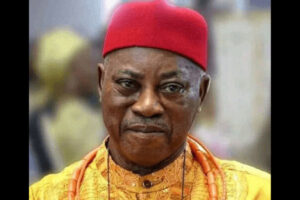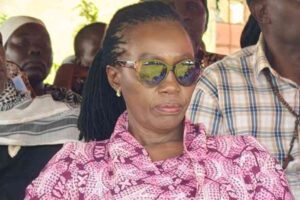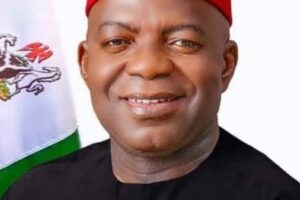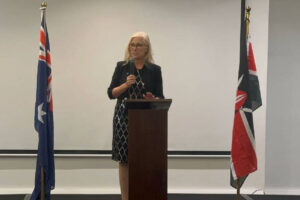
Nairobi — President William Ruto says Nigeria and the African continent was immensely enriched by the late former Nigerian President Muhammadu Buhari’s wisdom and steadfast commitment.
President Ruto made the statement in his condolence message to Nigerian President Bola Tinubu following the death of the former Statesman at the age of 82.
He pointed out that “during his tenure in office, President Buhari championed the fight against corruption and advanced regional security initiatives to counter terrorism and supported Africa’s agenda for economic integration.”
He recalled Buhari’s State Visit to Nairobi in January 2016, which marked a significant milestone in bilateral relations between the two countries.
“We also remember with sincere appreciation his message of congratulations in August 2022, following my election as President of Kenya, a testament to his abiding faith in democratic governance and to the enduring relations between Kenya and Nigeria,’ he stated.
Buhari, who once ruled the country as a military strongman before returning decades later as a democratically elected leader, has died at a clinic in London, his former spokesman Garba Shehu confirmed on Sunday.
Buhari, who left office in 2023 after serving two presidential terms, made history in 2015 as the first opposition candidate in Nigeria to defeat a sitting president at the ballot box–a landmark moment in the country’s democratic evolution.
A lean, austere figure and devout Muslim from northern Nigeria, Buhari first seized power in a 1983 military coup, leading a short-lived regime that launched a harsh “War Against Indiscipline,” cracking down on dissent and jailing politicians accused of corruption. He was ousted after just 20 months.
Decades later, he returned to power through the ballot, rebranding himself as a “converted democrat” and winning the 2015 election on promises to defeat corruption and Boko Haram insurgents. He secured a second term in 2019, backed by overwhelming support from his northern political base.
Despite these promises, Buhari’s presidency was marred by persistent economic hardship, growing insecurity, and widespread public dissatisfaction. His government struggled to rein in corruption or to significantly improve the lives of ordinary Nigerians, many of whom continued to live in extreme poverty amid rising unemployment and inflation.
Buhari was often criticised for a perceived slowness in governance–earning him the nickname “Baba Go Slow”–as well as for his reliance on a close inner circle and accusations of nepotism. His delay in naming key cabinet members after assuming office raised concerns over his governing style, and several senior officials under his watch were later investigated for corruption.
Sign up for free AllAfrica Newsletters
Get the latest in African news delivered straight to your inbox
Success!
Almost finished…
We need to confirm your email address.
To complete the process, please follow the instructions in the email we just sent you.
Error!
There was a problem processing your submission. Please try again later.
Concerns about his health were also a recurring feature of his presidency. In 2017, he spent several months in London receiving treatment for an undisclosed illness, fuelling speculation about his capacity to lead. Even after retirement, Buhari continued to make frequent medical trips to the UK.
On security, Buhari declared Boko Haram “technically defeated” just months into his first term. However, the jihadist group–and later, its Islamic State affiliate–continued to carry out deadly attacks on civilians and security forces, particularly in the northeast. Meanwhile, violent banditry, farmer-herder clashes, and communal conflict in the northwest and central regions displaced millions and added to the country’s security crisis.
His administration was further criticised for the brutal suppression of dissent. In 2015, Nigerian forces killed hundreds of Shiite protesters in Zaria. And in 2020, during the #EndSARS protests against police brutality, security forces opened fire on peaceful demonstrators at Lagos’s Lekki Toll Gate, sparking national outrage and global condemnation.
While Buhari maintained a reputation for personal modesty and anti-corruption rhetoric, his legacy remains deeply polarising. Supporters remember him as a disciplined and principled leader; critics argue he failed to deliver meaningful reform or unite Nigeria’s deeply divided regions.
After stepping down in 2023, Buhari retired to his hometown of Daura in Katsina State but remained a figure of national interest. He made occasional visits to Kaduna and continued to travel to London for medical checks.





